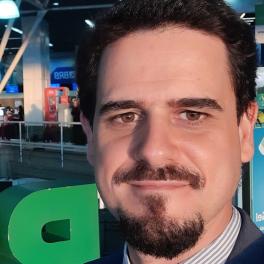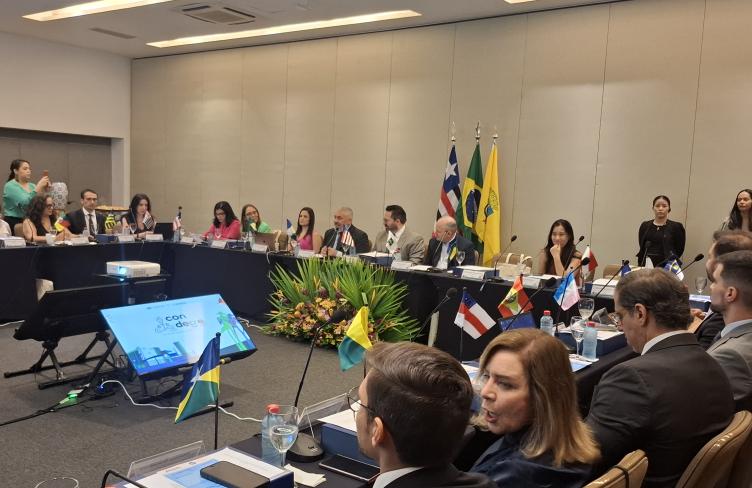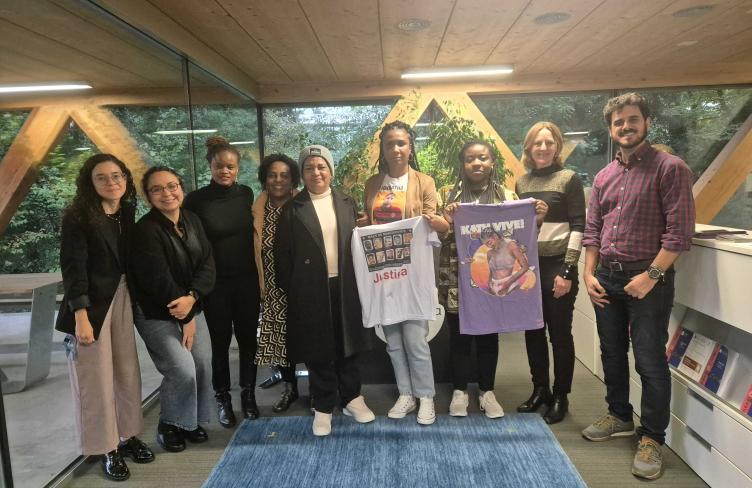
The visit by the United Nations Expert Mechanism to Advance Racial Justice and Equality in Law Enforcement (EMLER) to Brazil, from 27 November to 8 December, put a spotlight on entrenched challenges within the country’s criminal justice system and its multiple police forces that require “transformative change”. Without such change, Brazilians of Afro-descents, who comprise more than half the country’s population (56,1%), will continue to be denied many of their fundamental human rights and face ongoing systematic discrimination, including by law enforcement officials.
The statistics make for grim reading. We know that Brazil’s police forces are among the most violent and lethal in the world. In 2021, more than 6,000 persons were killed at the hands of police. Black people were three times more likely to be murdered by law enforcement officials. From May to November 2023, more than 17,000 instances of police abuse were reported by detainees during custody hearings. In Rio de Janeiro, eight out of ten people who reported assault by the police were black[1]. In Bahia, public defenders report that 98% of persons detained by police are Afro-descendants.[2] And in the country’s prisons, black Brazilians make up more than two-thirds (67.8%) of inmates, well above the Afro-descendant general population.
These are just some of the many serious consequences of what Brazilian academic and current Minister for Human Rights, Mr. Silvio Almeida, describes as structural racism. In his book on this topic, Mr. Almeida notes that “the greatest tragedies derived from racism were committed under the rule of law”. He also explains that race is a sociopolitical construction, emphasizing that the “justice system is one of the most efficient mechanisms for creating and reproducing race and its multiple meanings”.[3] In this sense, “racism derives from the social structure itself, from the ‘normal’ behavior in political, economic, legal and even familial relations”[4] affecting not the exception, but the bulk of individual interactions and institutional proceedings.[5]
In this context, it is worth noting the importance of Brazil’s invitation for an official visit from EMLER. In its three-year mandate under Human Rights Council Resolution 47/21, the body has the broad mandate to examine racism by State authorities, institutions and legal framework, the excessive use of force and other violations of international human rights law, and the root causes of systematic racism in law enforcement and the criminal justice system, among other objectives. To establish a comprehensive, global overview on this important issue, the experience of Brazil must be considered by EMLER.
Highlighting the profound and chronic racial injustices faced by people of Afro-descent in Brazil, 141 international and Brazilian organizations signed an open letter[6] to the Ministry of Foreign Affairs requesting that the UN experts be invited to conduct a fact-finding mission in the country. Brazil is now the only country in Latin America to receive a visit by EMLER.
The Association for the Prevention of Torture Representative in Brazil, Sylvia Dias, took part in a meeting with the EMLER delegation and 15 civil society organizations in Rio de Janeiro. Among several issues related to torture prevention, discrimination and police oversight, Ms. Dias raised matters connected to APT’s current initiatives in the country.
"The effective implementation of detention control hearings by courts 24 hours after every arrest, the role of the Public Prosecutor's Office as a key institution with the constitutional mandate to exercise oversight of police conduct, and the adoption by criminal justice system of the Principles on Effective Interviews for Investigations and Information Gathering - also known as the Méndez Principles - are all fundamental issues to address torture prevention, discrimination and police oversight in Brazil," Ms. Dias told the EMLER delegation.
"The Méndez Principles bring about a new paradigm so that institutional practices on interviewing detainees adopt rapport-based standards,” Ms Dias added. “This represents a huge shift from the entrenched disregard of detainees’ statements in criminal proceedings in Brazil, where judicial authorities often rely solely on the narrative offered by police officers."
The EMLER delegation also visited Brasília, Salvador, Fortaleza and São Paulo, meeting State and civil society representatives, including victims and their family members. The press release issued by EMLER at the conclusion of its visit draw attention to the way that racial profiling and discrimination undermines access to justice in Brazil.
“We are calling for system-wide transformative change. The Government of Brazil must re-evaluate the current procedures of investigating law enforcement misconduct, dismantle systemic racial inequalities, and invest in addressing historical disparities at the root of these issues,” Mr. Juan Méndez, head of the EMLER delegation, said. “Renewed commitment, financially, structurally and implementing decisions handed down by the Brazilian Supreme Federal Tribunal and the Inter-American Court of Human Rights on police action in favelas, is imperative. Focusing on people of African descent is crucial to demonstrate a sincere dedication to tackling these long-standing challenges.”
The heart-wrenching testimonies of people who have experienced serious human rights offences by police in the favelas and outskirts of Brazil´s cities, combined with the country's record of unresolved historical injustices, provide robust evidence of the current lack of racial justice and equality in law enforcement. Brazil now has an opportunity to rise to the occasion and take seriously the insights and recommendations of EMLER by beginning the process of addressing the root causes of the racism that permeates its society and institutions. Documenting racially-oriented abuses and developing non-racist practices and legal frameworks are essential to promote racial justice and fulfil the non-discrimination principle set out in international human rights law and initiate the system-wide, transformative change envisioned by EMLER.
[1] Source: studies by the Public Defense Office of Rio de Janeiro: "Denúncias de agressão a presos em flagrante volta a crescer após retorno das audiências de custódia no RJ, aponta estudo", https://g1.globo.com/rj/rio-de-janeiro/noticia/2021/12/09/denuncias-de-agressao-a-presos-em-flagrante-volta-a-crescer-apos-retorno-das-audiencias-de-custodia-no-rj-aponta-estudo.ghtml
[2] Public Defense Office of Bahia, Report on custody hearings in Salvador/Bahia, https://www.defensoria.ba.def.br/wp-content/uploads/2020/10/sanitize_relatorio-audiecc82ncias-de-custodia-salvador-20192.pdf_291020-120915.pdf
[3] ALMEIDA, Silvio. Racismo Estrutural. Coleção Feminismos Plurais. Coord. Djamila Ribeiro. São Paulo: Sueli Carneiro; Pólen, 2019, p. 54.
[4] Ibid., p. 41.
[5] Idem.
[6] HRW. Open Letter to Brazil's Minister of Foreign Affairs: Civil society urges ministry to invite new UN mechanism on racial justice to visit Brazil. 18 April 2022. See <https://www.hrw.org/news/2022/04/18/open-letter-brazils-minister-foreign-affairs>



